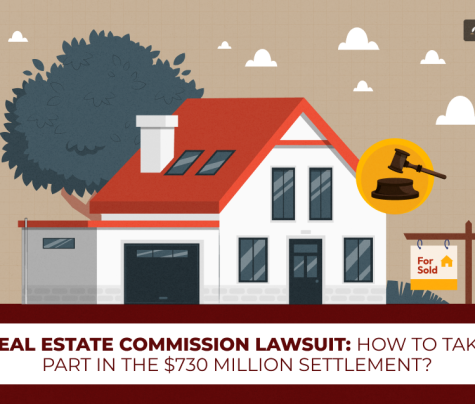
- According to studies, around 70% of families experience conflict during estate settlements, often due to unclear or poorly constructed trusts.
- The global wealth transfer is projected to exceed $84 trillion by 2045, significantly increasing the demand for professional estate planning services.
- Frequent updates in tax regulations make professional guidance essential for minimizing liabilities and ensuring compliance.
- Nearly 40% of Americans with estate plans now use trusts to manage their assets, a number that continues to rise each year.
Estate planning is about ensuring your legacy is passed on smoothly and as intended. A trust attorney can be an invaluable ally in achieving this goal. With the increasing complexity of laws and rising concerns over asset protection, hiring a trust attorney is no longer just a good idea—it’s a necessity.
A trust attorney can make estate planning stress-free, protect your assets, and avoid future conflicts. In this article, I will talk about why hiring a trust attorney is essential and how they can simplify this critical process.
Understanding Trust in Real Estate and Property
Before talking about trust attorneys, it is important that you understand what trusts are. So, hear me out!
When it comes to estate planning, a trust is a powerful legal tool used to manage and distribute your assets efficiently. It provides a way to safeguard your property and ensure your wishes are followed after your passing.
In simple terms, a trust is a legal agreement where a trustee (a person or institution) manages your assets on behalf of beneficiaries.
One key benefit of a trust in real estate is avoiding the probate process. Probate can be time-consuming, costly, and public.
By placing your property in a trust, it transfers directly to your chosen beneficiaries without the need for probate, saving time and preserving privacy. This is particularly valuable for real estate assets, which often hold significant financial and emotional value.
Trusts also allow you to outline specific conditions for how and when beneficiaries can access your assets.
For example, if you want to ensure your property is used only for certain purposes, like family housing, a trust can enforce those terms. Furthermore, a trust can protect your assets from creditors or legal disputes, offering extra security for your beneficiaries.
Whether you’re dealing with a family home, investment properties, or land, incorporating a trust into your estate plan ensures your property is managed according to your wishes.
A trust attorney can guide you through the process, ensuring everything is legally sound and tailored to your needs.
What is a Trust Attorney?
A trust attorney is a real estate planning expert. This individual can assist you in preparing all the necessary paperwork that you require to set up your trust for estate property.
They will set up the trust on your behalf. You need to name someone as a trustee in your trust. Additionally, your trust attorney will be liable for providing all sorts of legal help to that person.
It’s not always mandatory to put someone from your family as your trustee. You can name a lawyer as your trustee if you want.
If you have a complex and comparatively larger estate, calling a lawyer your trustee will benefit you. Moreover, a lawyer will be an impartial third party, which might work in your favor.
What is the Job Role of a Trust Attorney?

As I have already told you, a trust attorney plays a very crucial role when it comes to estate planning and trust management.
Furthermore, they ensure that your assets are protected and distributed according to your wishes.
Additionally, their job involves legal expertise, personalized advice, and practical assistance to make complex processes easier for individuals and families.
Here are the key roles and responsibilities of these lawyers:
1. Drafting and Structuring Trusts
Trust attorneys create legal documents to set up trusts tailored to your goals. Whether it’s a revocable living trust for estate flexibility or an irrevocable trust for asset protection, they ensure the trust complies with legal requirements and aligns with your financial plans.
2. Estate Planning Coordination
They integrate your trust with other estate planning tools like wills, powers of attorney, and healthcare directives. This holistic approach ensures a seamless transition of assets, minimizes tax burdens, and avoids conflicts among beneficiaries.
3. Providing Legal Guidance
Trust attorneys advise on the best strategies to protect your wealth and achieve long-term goals. They explain complicated legal terms in simple language, helping you make informed decisions.
4. Managing Trust Administration
After the trust is established, the attorney assists with administrative tasks, such as transferring assets into the trust, managing trust property, and ensuring compliance with state and federal laws.
5. Resolving Disputes
In cases of disagreements over trust management or terms, trust attorneys mediate disputes or represent clients in court. Their goal is to resolve issues efficiently while protecting the trust’s integrity.
6. Tax Planning and Compliance
Trust attorneys analyze your estate’s tax implications and help you implement strategies to reduce taxes, such as setting up charitable trusts or utilizing exemptions.
When Do You Need a Trust Attorney?
A trust attorney is essential when you’re navigating the complexities of estate planning, especially if you want to create a trust for your assets.
Trusts can be powerful tools, but setting them up correctly requires legal expertise to ensure they serve your goals and comply with the law.
Here are key situations where hiring a trust attorney is crucial:
1. Establishing a Trust: Whether it’s a living trust, revocable trust, or irrevocable trust, an attorney can guide you on the best option based on your financial goals, family situation, and long-term plans.
2. Complex Estates: If you have multiple properties, investments, or international assets, an attorney ensures that everything is structured to minimize taxes and legal risks.
3. Blended Families: For families with stepchildren or unique dynamics, a trust attorney can help prevent conflicts by clearly defining asset distribution.
4. Protecting Beneficiaries: If your beneficiaries are minors, disabled, or need financial management, a trust attorney can design provisions to safeguard their interests.
5. Avoiding Probate: Trusts are excellent tools for bypassing the lengthy and costly probate process. An attorney ensures your trust is legally sound to achieve this.
In short, a trust attorney not only simplifies the process but also provides peace of mind that your legacy is secure. They handle legal intricacies, giving you confidence that your wishes will be honored.
What Are the Focal Practice Areas of Trust Attorneys?
Trust attorneys specialize in various aspects of estate planning and trust management to ensure your financial and personal wishes are honored.
With their multifaceted expertise, they bring clarity and efficiency to complex processes, making them indispensable for effective estate planning and trust management.
Here’s an overview of their key practice areas:
1. Trust Creation and Administration
A major role of trust attorneys is drafting and setting up trusts. They ensure your trust aligns with your goals, whether it’s protecting assets, avoiding probate, or caring for a loved one. Once a trust is established, they also guide its administration, ensuring assets are managed correctly and distributed according to your wishes.
2. Estate Planning
Trust attorneys often work alongside clients to create comprehensive estate plans. This includes wills, powers of attorney, and healthcare directives that complement your trust. Their expertise ensures all documents work seamlessly together to minimize complications.
3. Asset Protection
Many individuals seek trust attorneys to safeguard their assets from potential risks like lawsuits or creditors. Attorneys use tools like irrevocable trusts to shield wealth while allowing beneficiaries to benefit securely.
4. Tax Planning
Reducing estate and inheritance taxes is another focal area. Trust attorneys design tax-efficient strategies through specialized trusts, such as bypass trusts or charitable remainder trusts, to preserve your estate’s value.
5. Specialized Trusts
Attorneys often create trusts for unique situations, including special needs trusts for disabled loved ones or trusts that facilitate charitable giving. These ensure legal compliance and tailored solutions for specific needs.
6. Trust Disputes and Litigation
If disputes arise over a trust’s terms or management, trust attorneys provide legal representation. They mediate or litigate conflicts to protect clients’ interests and ensure fair outcomes.
Finding a Good Trust Attorney: Things to Consider Before Choosing
When looking for a competent trust attorney, take into account the following elements to guarantee you locate the correct legal practitioner for your needs:
Specialization
Look for an attorney specializing in trust and estate law. Specialization suggests a more in-depth grasp of the issues associated with trust design and administration.
Experience
Look for an attorney with extensive experience addressing trust concerns, such as creating trust contracts, estate planning and administration, and resolving trust disputes. An experienced attorney is better able to manage complicated legal challenges and offer reliable counsel.
Reputation
Investigate the attorney’s reputation in the legal community and among previous clients. Look for reviews, testimonials, and references from reputable sources to determine their professionalism, competency, and client happiness.
Qualifications
Check the attorney’s qualifications, including schooling, license, certificates, and participation in appropriate professional groups. Membership in organizations like the American Academy of Estate Planning Attorneys or the National Association of Estate Planners and Councils can demonstrate a dedication to trust and estate law expertise.
Communication
Choose an attorney who communicates well and listens to your issues. Clear and responsive communication is critical for understanding your objectives, clarifying difficult legal ideas, and keeping you updated throughout the trust process.
Tailored Approach
Look for an attorney who offers a tailored approach to client representation. They should take the time to understand your specific situation, goals, and family dynamics in order to personalize their guidance and recommendations accordingly.
Availability and Accessibility
Consider the attorney’s availability and accessibility. Trust situations may need continuing contact and collaboration, so be sure the attorney is attentive to your requests and ready to discuss any emerging issues or concerns.
Fee Structure
Know the attorney’s price structure up front, including billing rates, retainer fees, and any additional expenses related to trust services. Clarify your expectations for fees and costs to minimize surprises later on.
Client Recommendations
Ask for recommendations from previous clients who have dealt with the attorney on trust concerns. Speaking with prior clients can give useful information about the attorney’s skills, communication style, and general satisfaction with their services.
Questions to Ask a Trust Attorney
When hiring a trust attorney, asking the right questions can ensure you receive the best advice and support for your estate planning needs.
By asking these questions, you can feel confident that your trust attorney understands your needs and has the expertise to help you protect your assets and legacy effectively.
Here’s a helpful list of questions to guide your discussion:
1. What experience do you have with estate planning and trusts?
Ensure the attorney specializes in trusts and estate planning, not just general law. Their experience will be crucial for navigating complex situations.
2. What type of trust is best for my situation?
Depending on your financial goals, family dynamics, and future plans, the attorney can help determine if a revocable, irrevocable, or another type of trust suits your needs.
3. How do you charge for your services?
Ask if their fees are flat-rate, hourly, or based on the complexity of your estate. Transparency in costs helps you plan financially.
4. How will my trust help avoid probate or minimize taxes?
Understanding the specific benefits of a trust can help you decide if it aligns with your estate planning goals.
5. What documents do I need to provide?
Knowing what information or paperwork you need to prepare ensures a smoother process.
6. How will the trust be managed and updated over time?
Trust laws or family circumstances may change, so it’s essential to ask about ongoing maintenance.
How Do I Find a Good Trust Attorney Near Me?

You can always search online with the help of the Internet and see who the best trust attorneys in your area are. First, you can check their online reviews, client feedback, professional experience, etc., on their website.
From that, you can narrow down your list to see which one of them matches your needs. That’s it, and you are all set to meet a good trust attorney near you.
You can also ask for first-hand reviews from your known people if anyone has hired a trust attorney before. Even if anyone knows such a person or has worked with someone like that, ask for their feedback.
It may not help you that much to decide whether they will be a good fit for you. However, it will help you determine how the trust attorney is as a person so that you can make decisions accordingly.
You can also ask your financial advisor for a referral. He knows your location, so he will probably suggest a good one near your location.
Next, you can consult other attorneys or ask your accountant if they are of any help. Finally, you can choose to contact your local probate court. If you are still wondering how to find a good trust attorney near me, just check out the advertisements and bar directories.
Bonus: What are the Possible Drawbacks of a Living Trust?

You can always hire a trust attorney if you want to manage a living trust. But be aware of the drawbacks of a living trust, too, before you make your decision.
There is too much paperwork to file for, and they are expensive. Not only managing the trust but also the fees of trust attorneys are quite costly. If your trust attorney is the trustee also, he will charge you by each hour.
If you fear that one of your properties does not have an ownership document, it will go into the wrong hands after your death. Just enlist them under the ‘assignment of property section’ and get rid of the unnecessary paperwork that comes with a living trust.
Record-keeping is quite hard in a living trust. Once it is created, it has to maintain the formality of simple record-keeping until the person who created it dies.
The income of the property and the transfer amount need to be detailed and mentioned in the records. If your real estate property transfers to a living trust, they require extra tax in some states, so you have to look after that as well.
If your trust needs refinancing, your trust attorney will have a lot of difficulties in doing so. First, as a living trust is the property of a trustee, banks might deny to refinance it.
In that case, your trust attorney will have to find another lender, transfer it to his name, take the loan, and retransfer it back. It is a time-consuming process, as you can imagine.
Choose Your Lawyer NOW!
A trust attorney will undoubtedly ensure that all your possessions go to the right people once you pass away. It is not in your control to deal with the later disputes about your properties that will take place after your death.
So, a trust attorney will do his job and abide by your instructions even if the conflicts lead to court. But, if you still need to include your last wish, your child’s custody, etc., you will need a will. Your trust attorney won’t be able to handle that.
Read Also:
- What Are The Types Of Hold Harmless Agreements?
- What Kind Of Lawyer Do I Need? Here Is Your Answer!
- How To Become A Lawyer











0 Reply
No comments yet.